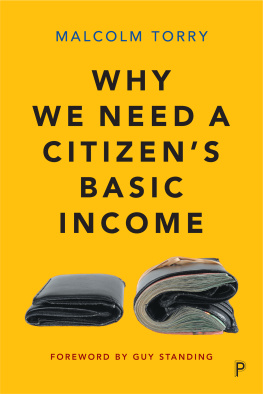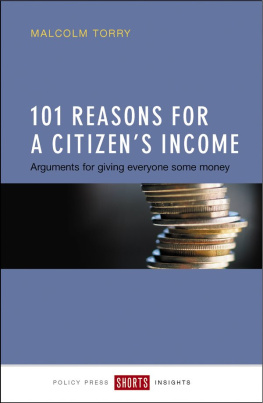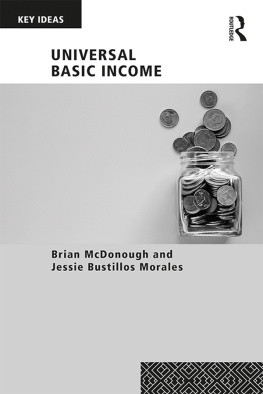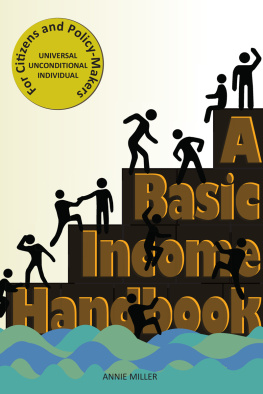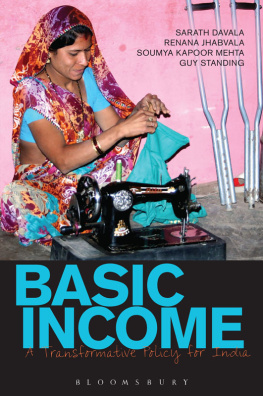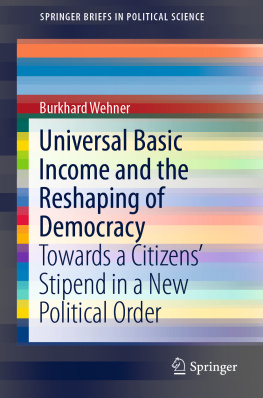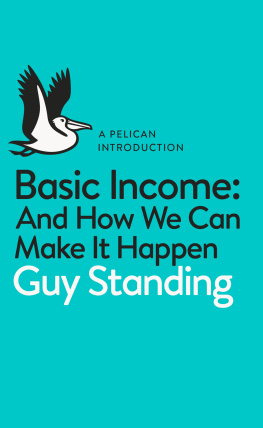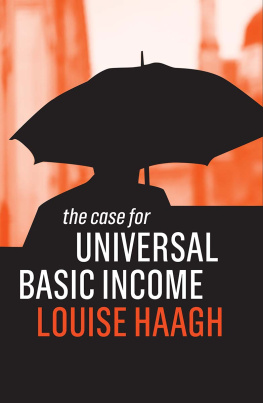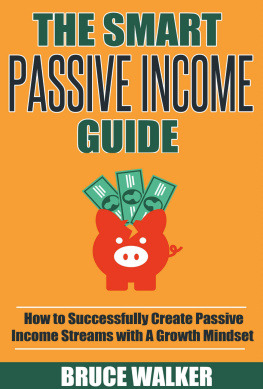First published in Great Britain in 2018 by
Policy Press University of Bristol 1-9 Old Park Hill Bristol BS2 8BB UK Tel +44 (0)117 954 5940 e-mail
North American office: Policy Press c/o The University of Chicago Press 1427 East 60th Street Chicago, IL 60637, USA t: +1 773 702 7700 f: +1 773-702-9756 e:
Policy Press 2018
British Library Cataloguing in Publication Data
A catalogue record for this book is available from the British Library
Library of Congress Cataloging-in-Publication Data
A catalog record for this book has been requested
ISBN 978-1-4473-4317-2 paperback
ISBN 978-1-4473-4315-8 hardcover
ISBN 978-1-4473-4318-9 ePub
ISBN 978-1-4473-4319-6 Mobi
ISBN 978-1-4473-4316-5 ePdf
The right of Malcolm Torry to be identified as author of this work has been asserted by him in accordance with the Copyright, Designs and Patents Act 1988.
All rights reserved: no part of this publication may be reproduced, stored in a retrieval system, or transmitted in any form or by any means, electronic, mechanical, photocopying, recording, or otherwise without the prior permission of Policy Press.
The statements and opinions contained within this publication are solely those of the author and not of the University of Bristol or Policy Press. The University of Bristol and Policy Press disclaim responsibility for any injury to persons or property resulting from any material published in this publication.
Policy Press works to counter discrimination on grounds of gender, race, disability, age and sexuality.
Cover design by Andrew Corbett
Front cover image: www.alamy.com
Readers Guide
This book has been optimised for PDA.
Tables may have been presented to accommodate this devices limitations.
Image presentation is limited by this devices limitations.
This book is dedicated to past and present trustees of the Citizens Basic Income Trust, and to everyone who gives time and energy to the debate on the desirability, feasibility and implementation of a Citizens Basic Income
There are two kinds of conditionality: conditionality that we can affect and that requires enquiry if a benefits system is to know whether we fulfil the condition; and conditionality that we cannot affect and that requires no enquiry. Income and employment status would be examples of the first kind, and age an example of the second. By unconditional benefits we mean social security benefits not subject to any conditions of the first type. Unconditional benefits can vary with someones age because we cannot affect our age, and once the system knows our date of birth it never again needs to enquire about our age. When the word unconditional is encountered in the literature, great care needs to be taken to ensure that it means genuine unconditionality: that is, that there are no conditionalities of the first type. This is not always the case.
Universal means for everyone, and usually implies everyone within a particular jurisdiction: but in the social policy literature a variety of usages can be found, often within a few pages of each other. The only benefit that would be both unconditional and properly universal would be a Citizens Basic Income. However, for the purposes of this book, and in accordance with common usage, universal will imply unconditionality: so Child Benefit will sometimes be termed a universal benefit.
A Citizens Basic Income also known as a Basic Income, a Citizens Income, or a Universal Basic Income is an unconditional and nonwithdrawable income paid to each individual by virtue of their citizenship or legal residence. Nonwithdrawable is often included in the definition to emphasise the fact that the Citizens Basic Income would not be withdrawn as other income rose: but strictly speaking nonwithdrawable is redundant because unconditional implies that. As we shall recognise in Chapter 9, there is a difference between a varying annual payment and an unvarying weekly or monthly income. This book will understand a Citizens Basic Income to be an income, of the same amount every week or every month, paid unconditionally to every legal resident of a country.
Basic Income, like Basisinkommen, Grundeinkommen and revenue de base, implies a foundational income: but the somewhat derogatory undertones of basic in the English language (basic can imply that something is not very good) led to Citizens Income becoming common currency during the 1990s. More recently, the two have been combined into Citizens Basic Income.
Some authors incorporate the word guarantee into the name, as in Basic Income Guarantee. I avoid guarantee language because it can imply means testing. For instance, the previous Labour government established a Minimum Income Guarantee, a means-tested payment to bring pensioners household incomes up to a prescribed level.
Clarity about the definition of Citizens Basic Income, Basic Income, Citizens Income and Universal Basic Income is essential. Where clarity is lacking, different contributors to discussion on the future of social security can mean different things, so rational debate cannot occur.
A Citizens Basic Income is an unconditional, nonwithdrawable and unvarying weekly or monthly income paid to each individual by virtue of their citizenship or legal residence.
Allowance
Child allowance, family allowance, or simply allowance, refer to payments made (in the case of child allowances, on behalf of the child to the main carer). Income Tax allowance or tax allowance refers to an amount of earned income on which tax is not levied, tax only being levied on income above the tax threshold.
Tax Credits (real ones) and Negative Income Tax
A Tax Credit is an amount of money ascribed to an individual, usually weekly. It is paid in full if an individual has no other income, and it is withdrawn at a specified rate as earned income rises. As earned income continues to rise, the Tax Credit ceases to be paid and the worker starts to pay Income Tax. If the individual is employed then the employer manages the Tax Credit.

